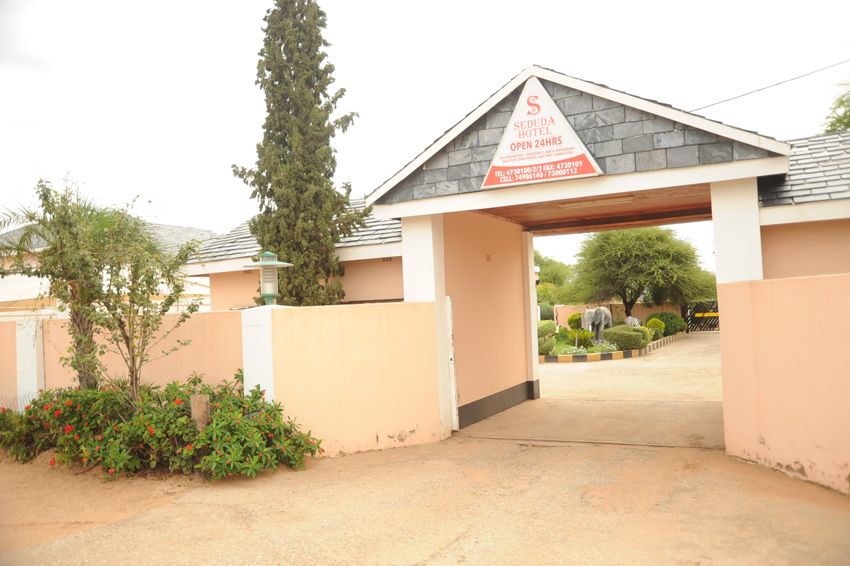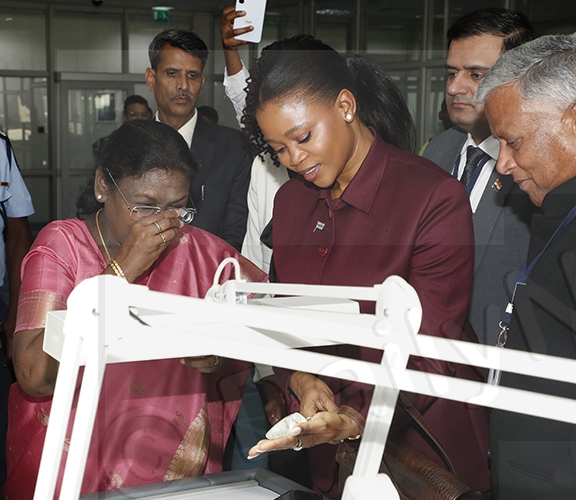COVID-19 cripples industry
24 Nov 2020
The COVID-19 pandemic has had a devastating impact on various businesses across the country with the hospitality industry being hard hit.
Most hotels and guest-house owners around Mahalapye are struggling to get their businesses’ performance back on track, as they continue to experience a considerable decline in profits due to the pandemic and low demand for their services.
In its swift response to COVID-19 threat, government, through the Ministry of Health and Wellness, imposed a number of health protocols, as mitigation measures to curb the spread of coronavirus in the country.
These health protocols include movement restrictions, prohibition of gatherings of more than two people, as well as a time limit of two hours for any permitted gatherings. In compliance to these protocols, most people began limiting leisure travels, which negatively impacted on the tourism industry, which is the country’s second economic heavyweight, after the diamond industry.
Sharing his business experience, Seduda Hotel managing director, Mr Ernest Osupile said prior to COVID-19 outbreak, his business was doing quite good in all aspects of accommodation, entertainment, catering and conferencing.
However, he said, following the country’s two months lockdown his business clientele had drastically reduced, with a decline in the number of bookings. Therefore, to reduce expenses and to avoid retrenching or totally shutting down his business, Mr Osupile said he had resorted to having half of his 22 employees work on two weeks shift each.
Another blow, Mr Osupile said was the emergence of the use of new technologies to hold virtual meetings by most government ministries, departments and corporate organisations, as they now hardly book to hold business meetings in hotels. He, however, acknowledged that organisations also did so in compliance with the extreme social distancing measure.
“Now, these new technologies also pose yet another challenge to our business and I foresee the status quo remaining even post COVID-19, as new technology will continue to be embraced. So, we can only hope for the best, because 90 per cent of our business profits came from government through bookings for meetings or accommodation, when government employees are on official trips.
And only 10 per cent profit came from social events, such as weddings, parties and gigs,” said Mr Osupile.
The recent government’s announcement of the opening of borders, he said also did not really excite him much, as it would not have much impact on his business profit, ‘as we strived most from government workshops and wedding ceremonies.’
“Opening of borders, for me, only bring in people who rarely use our services, because most of the time they are on transit and therefore do not provide much business,” he said.
Seduda Hotel has 23 accommodation rooms, a hall, conference room, board room and garden for holding outdoor events.
FlowerInn Exclusive Guest House managing director, 37 years old, Mr Thabo Gabanamotse from Bobonong, said his business was doing well, since it began operation in February 2018.
However, he said his business started experiencing financial hardships, resulting from movement restrictions and closing of borders. Although government provided them with wage relief funds, Mr Gabanamotse said the funds were not enough to cover other basic operating expenses.
Interventions that government put in place to curb the spread of the coronavirus in the country, he said had far reaching financial and operational challenges to their business.
Unlike Mr Osupile, Mr Gabonamotse said the successes of his business thrived on tourists on transit, as Mahalapye was conveniently a stop-over for most people travelling to and from the North and South of the country, as it is situated along the main Gaborone and Francistown road.
He said the recent opening of borders had redeemed his hope that his customer base would improve, adding that he was assessing the challenges brought by the outbreak and coming up with recovery measures to meet the needs of different travelers.
Mr Gabonamotse said he was doing his best to cultivate his ideas to ensure that by the time things get better; his business services were more desirable to customers. Additionally, he said he was also looking into diversifying his profit making streams.
“To me, closing the business will only come as a last resort, because I have decided to become resilient and agile. To navigate the waves of this crisis, one simple has to adapt and thrive by capitalizing on improving measures to support business continuity,” he said.
He said, “Overcoming my existing and new challenges, coupled with the imposed health protocols, is still not easy. Of the four staff that I have, I had to suspend some contracts and have them work remotely. This, I did to reduce expenses and rapidly address the demands of a few clientele in the market,” he said.
Mr Gabonamotse acknowledged government’s efforts in imposing health protocols to reduce potential for exponential spread of the coronavirus, saying it was necessary to also prevent the health sector from being overwhelmed with positive COVID-19 cases.
“Hopefully, like any other life challenges, this crisis too shall pass, although it had already posed a survival threat to our hospitality industry. All we have to do now, to attract and retain customers, is to continue to re-define safety, sustainability and productivity in this new normal,” said Mr Gabanamotse.
Unfortunately, he said, the measures impacted negatively on their business profits as they were faced with a challenge of regaining customer confidence ‘as some people are still uncomfortable and a bit skeptical to return to using our services.’
FlowerInn Exclusive Guest House’s main services include accommodation for business and leisure travelers, swimming pool, lobby bar and garden for outdoor events. ends
Source : BOPA
Author : Lorato Gaofise
Location : MAHALAPYE
Event : Interview
Date : 24 Nov 2020






